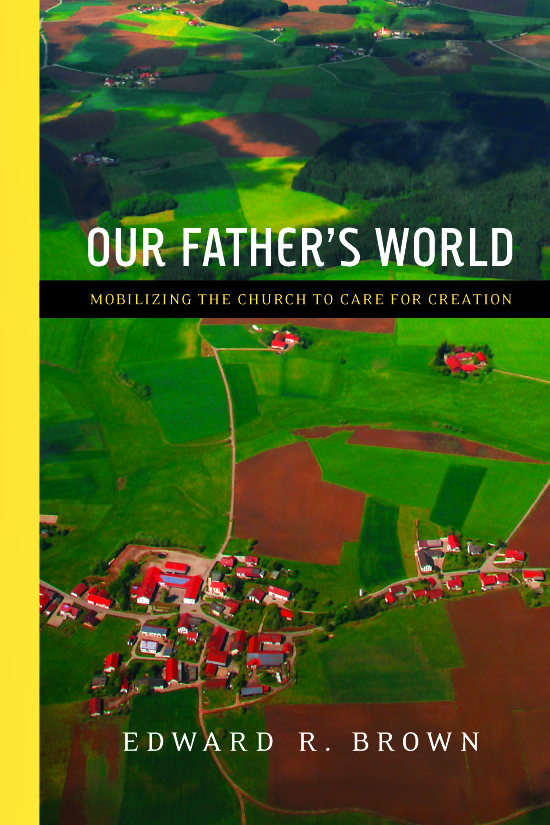Earlier this year, I had the opportunity to speak at length on the phone with a Christian I had met at a gathering of conservationists and other community members in central Illinois. He and his wife are active members of their church. They also happen to care deeply for God’s earth.
This wasn’t always the case.
The turning point came in 2005 when he had back surgery while living in Ohio and couldn’t walk for some time. When he began to recover, he made it a goal to walk all 16 Metro parks in Columbus. The experience renewed his love of nature. Later, when he retired and returned with his wife to Illinois, he completed a Master Naturalist program. This, in turn, led him to get further involved with conservation through a local non-profit organization that preserves and restores natural areas. As part of their desire to live as simply as they could, they bought a seven-acre property, built a passive solar home, and have been restoring the land to native natural habitat.
Yet, he has found that not everyone at their church sees the connection between the Christian faith and the his and wife’s attentiveness to Creation.
He vividly remembers being asked by a fellow church member, “Why do you waste your time with that?”
In Our Father’s World: Mobilizing the Church to Care for Creation, Edward Brown recounts a similar experience. He was having a conversation over coffee with a friend he deeply respected who had been the principal of a missionary school that both Brown and his wife had attended early in their lives. When Brown describes the mission organization he had founded (Care of Creation) and his personal commitment to environmental missions, he could tell this friend was distressed by all that he was saying. Here’s how Brown recounts his friends’ words to him: “He finally put down his cup of coffee, looked me in the eye and said, “Ed, what in the world does this have to with the Great Commission?””
If you’re Christian and you’ve expressed a concern for God’s earth, you’ve probably faced something like this moment yourself. So how do you answer those questions?
The following excerpt from Our Father’s World, published by InterVarsity Press, will be helpful for you to read. You’ll see that Brown places a commitment to preserving God’s earth within the context of a whole Christian life.
He also pushes back. He highlights the negative consequences that unfold when Christian missions don’t present a complete faith that includes a commitment to shepherding God’s living world.
Here is the excerpt:
If you’ve stayed with me this long, you have a pretty good idea of why I believe caring for God’s creation has everything to do with that final command that Jesus gave his disciples: “Go and make disciples of all nations” (Matthew 28:19). I’ve made a case for full, creation-restoring redemption. But my friend’s question is a serious one. He has seen the primary message of the gospel of Jesus Christ diluted by various kinds of “social gospel,” and he believes he has some reasons to be nervous. Is this just one effort to make a timeless gospel relevant, focusing on human needs but cutting out the essential heart of redemption and forgiveness of sins through Jesus’ sacrifice on the cross? The history of Christian ministry is littered with the carcasses of organizations that attempted to adapt to the needs of the moment and in the process lost the spiritual power that made them unique.
So how is caring for creation different? The first part of the answer requires a review of the foundation laid in the first part of this book. Christian missions is the effort of the whole church to extend Christ’s ministry of reconciliation (see 2 Corinthians 5:11-21) to all nations and all peoples, making disciples and “teaching them to observe” all of Jesus’ teachings and commandments (Matthew 28:20), in effect teaching them to live in ways that will reverse the curse of sin throughout all of God’s creation.
We’ve seen that this process involves a restoration of each of the relationships broken at the time of Adam and Eve’s sin: our relationship with God is restored in salvation; our relationship with ourselves in sanctification; our relationship with each other in koinonia, the restored community of the church; and our relationship with nonhuman creation in learning to live in harmony with it again, a process reflected in the ancient Hebrew word shalom….. If, then, the purpose of Christian missions or ministry is the accomplishment of this kind of full redemption, including creation care is not a distraction from the main goal. It is the goal.
Countries like Kenya have experienced more than one hundred years of missionary presence, but their current state shows no improvement. Depending on what you want to measure, Kenya is possibly a great deal worse off than before the gospel arrived. Is there a correlation between this and the truncated view of the Christian missions we’ve promoted for the last century? If the biblical goal is shalom, but we thought we were finished when we delivered a simple message of salvation, it’s no wonder things haven’t worked out quite as well as we might have expected. Bad theology – or at least incomplete theology – will always give bad results.
Jesus warned his disciples of the dangers of casting out a demon and leaving the “house” swept, cleaned but unguarded. That demon returns with seven others more powerful than itself (see Luke 11:24-25). We have driven out the demons of paganism with a lightweight gospel of personal salvation. Today the churches in these countries are reaping the harvest. If we’re honest, the results of this are evident not just in the daughter churches of missionary-receiving countries, but also in many of the mother churches that sent missionaries out in the first place. Bringing creation care and missions together will restore the theological integrity of the missionary enterprise.




